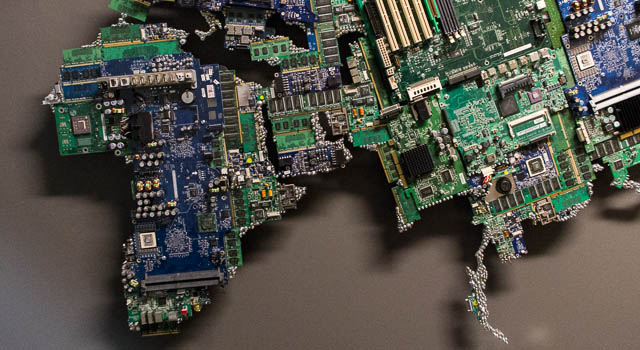
Meltwater Entrepreneurial School of Technology (MEST) has built one of Africa’s best known startup ecosystems in Accra, Ghana over the last eight years—and now it’s doubling down on a push to take its vision pan-African.
As MEST has grown, it has opened up its local entrepreneur training program to founders from Nigeria and Kenya who usually want to go back home after their year-long program. To help ensure those startups thrive beyond the mothership, MEST is finalizing plans to open its first incubators in Lagos and Nairobi this summer. By next year, it expects plans to be in place to open incubators in Cape Town and Johannesburg.
MEST, which opened up shop in 2008 as a non-profit arm of San Francisco-based Meltwater Group, was a pioneer of the startup hub model in Africa. But in recent years its has been surpassed by newer, faster growing hubs in other African cities.
Reflecting the rapid growth in the continent’s startup scene, MEST is taking a long bet on African startups by starting to raise $50 million for its first venture capital fund, called MEST Venture Partners. The new fund will also back non-MEST trained startups.
Last year, startups on the African continent brought in more than $185.7 million, with South African, Nigerian and Kenyan leading the way.
In the last decade, on the back of an “Africa rising” narrative, local startups have matured beyond the “me too” business models which simply tried to replicate Silicon Valley companies. Now, many strive to solve some of the continent’s real world challenges in sectors from fintech to e-learning to health support. Even as startup investment has slowed around the world, and many of Africa’s large economies face headwinds, investment in African startups is very active. This is what MEST will be hoping to tap into.
From seed to seedling
MEST takes an early seed stake in every startup it supports, and in exchange entrepreneurs get intensive one-year training. It typically winds up with a 10% equity stake in startups that graduate from its program. If it makes a cash seed investment, which is usually around $50,000, then MEST takes an additional 20% in equity. The new VC model will see MEST make a bigger financial commitment to some of its most promising startups, as well as others in need of later stage funding.
“While we currently make seed round investments at the MEST Incubator, MEST Venture Partners will make check sizes closer $1 million to $2 million,” said MEST managing director Katie Sarro. The fundraising is tapping into both Meltwater’s Silicon Valley roots and local and international investors on the continent.
MEST has invested around $20 million in startups over the last eight years, through a mix of seed funding and its entrepreneur training program.
Sarro says MEST is on the hunt for the ideal office space in both Lagos and Nairobi. It’s also looking for two general managers to help run the new units.
“We started here in Ghana because it had basics like being politically and economically stable,” says Emmanuel Quartey, MEST’s general manager. “But now as we expand you can’t just ignore a country like Nigeria, for example, given its size.”
Both Lagos and Nairobi have larger startup markets than Accra. Lagos, for example, is home to CCHub and Lagos Garage, while Nairobi has Nairobi Garage and iHub among others. Nairobi in particular has won global recognition for fostering a “Silicon Savannah” startup ecosystem which is producing up and coming local tech companies.
“Implicit in what we look for in our startups are teams that can grow quickly and scale pan-African wide,” says Quartey. “Maybe you get your feet wet in Ghana, but if you’re ambitious you need to expand into Nigeria and other countries.”
MEST is able to point to a few successful exits since it started including Saya Mobile, a mobile messaging app bought by US company Kirusa, which specializes in building for emerging markets. Another successful exit was Claimsync, which digitizes health records and was bought by a Norwegian biometric company GenKey.
Credit: Quartz Africa









